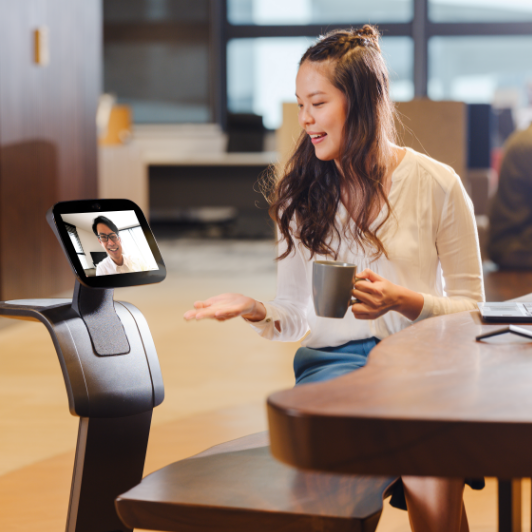Published: Jun 27, 2022
how technology is reshaping the role of the IT department
Trends Impacting the Future of Work
Globalisation and new technologies have in recent years wrought profound changes in the way we work. These changes have become more pronounced in light of the Covid-19 pandemic, which disrupted labour markets and forced organisations around the globe to adopt remote or hybrid working models.
As a result, organisations are increasingly thinking about what the future of work will look like. Gerard Koh, Vice President People and Culture at NCS Group, says that there are three key trends to watch:
Today’s rapid rate of technological change is causing lines between industries to become increasingly blurred. Organisations in the property, finance, and fast-moving consumer goods (FMCG) spaces are adopting more IT-based business models. As Koh says, “every company today wants to become a tech company.”
In the healthcare sector, tasks like screening, monitoring, and diagnostics can be handled by applications, freeing up doctors’ time to focus more on patient care.
The rise of artificial intelligence (AI) will cause some industries and jobs to disappear altogether.
Automation technologies are becoming ubiquitous in the workplace. However, a recent study conducted by Bain & Company and UiPath uncovered an interesting paradox: while 86 percent of employees want to use automation, only 30 percent of business leaders give them access to it, and only 5 percent allow them to create their own automations.
Despite fears about robots replacing humans in the workplace, automation is actually creating new jobs. This is because innovative technologies create new needs and alter existing ones.
The jobs least at risk of being taken over by AI and robotic process automation (RPA) are those that are creative in nature or involve empathy or the ability to organise and lead teams.
Global talent mobility is at an all-time high. Workers, especially highly skilled ones, have been moving around the world in ever-increasing numbers for many years now, thanks to globalisation and technologies and business models that allow for hyperconnectivity and hyper-collaboration. The rise of remote working during the pandemic has only served to accelerate this trend.
This has major implications for the way organisations operate. For example, managing a global workforce means keeping on top of labour and tax laws in multiple jurisdictions.
Increased talent mobility also means that employers need to focus more on how to attract and retain talent. This is especially pertinent given the fact that workers, especially those in the tech and healthcare sectors, have been leaving or switching jobs in record numbers in recent months, a trend known as the Great Resignation.
The changing face of the IT department

Amid these developments, the IT department is undergoing a sea change. In most organisations, the size of the IT department has decreased from hundreds of employees to less than 10 in line with a reduced focus on IT infrastructure.
IT departments have traditionally been responsible for deploying and maintaining the infrastructure[1] that enables employees to collaborate seamlessly and securely within their organisation and with external partners. This includes things like computers, servers, software, Internet connection, and so on.
Learn more about NCS Infrastructure →
However, with the rise of cloud computing, many organisations are simplifying their IT operations by switching to a consumption-based model. This allows organisations to cut costs by paying only for the IT services that they need, while improving efficiency by reducing or eliminating dependence on complex legacy systems. It also allows organisations to stay up to date with the latest IT innovations without having the expense of regularly upgrading on-premises systems.
“I think infrastructure will become like how you consume power,” Albert Koh, Senior Partner, Infrastructure (Enterprise) at NCS Group, says, “if it works, nobody complains. Everything is done by the service provider.”
According to Koh, “if you look at the future of IT departments, there’s not going to be space for infrastructure teams. You should not be managing infrastructure; you should be managing your business — looking at the goals. The new companies — the fintech, the start-up — I really do not believe they have a tech infrastructure back there. It’s kind of minimal.”
The shift to a consumption-based model means that the role of the IT department has changed. Whereas IT teams largely operated behind the scenes in the past, today they are much more involved in the strategy side of things and helping their organisations harness the power of data to drive growth. According to a survey conducted by Gartner, “84 percent of CIOs at top-performing organisations have responsibility for areas of the business outside of traditional IT, the most common being innovation and transformation.”
The IT department will play an increasingly pivotal role as ever more advanced technologies continue to transform the workplace. This will necessitate a radical change in the way organisations view the IT function, and it will require IT teams to develop new skill sets. According to Koh, companies in the Asia-Pacific region have some catching up to do in this regard. “The thing in the US is that they are more ready to fail than we are. Here, if something is working then why do I want to change?” he says.
If companies are risk averse, then there is a need to push the boundaries. Transformation does not have a finishing line, it is a journey. Companies that stay proactive will eventually come up ahead.
As demand for service-based IT products continues to increase, so, too, will consumption-based options, which could revolutionize the IT departments as we know it.
The true value from tech can be harnessed from advanced technology that allows you to innovate instead of simply reacting to industry changes. By planning ahead, you can target untapped markets with expanding your customer base.


